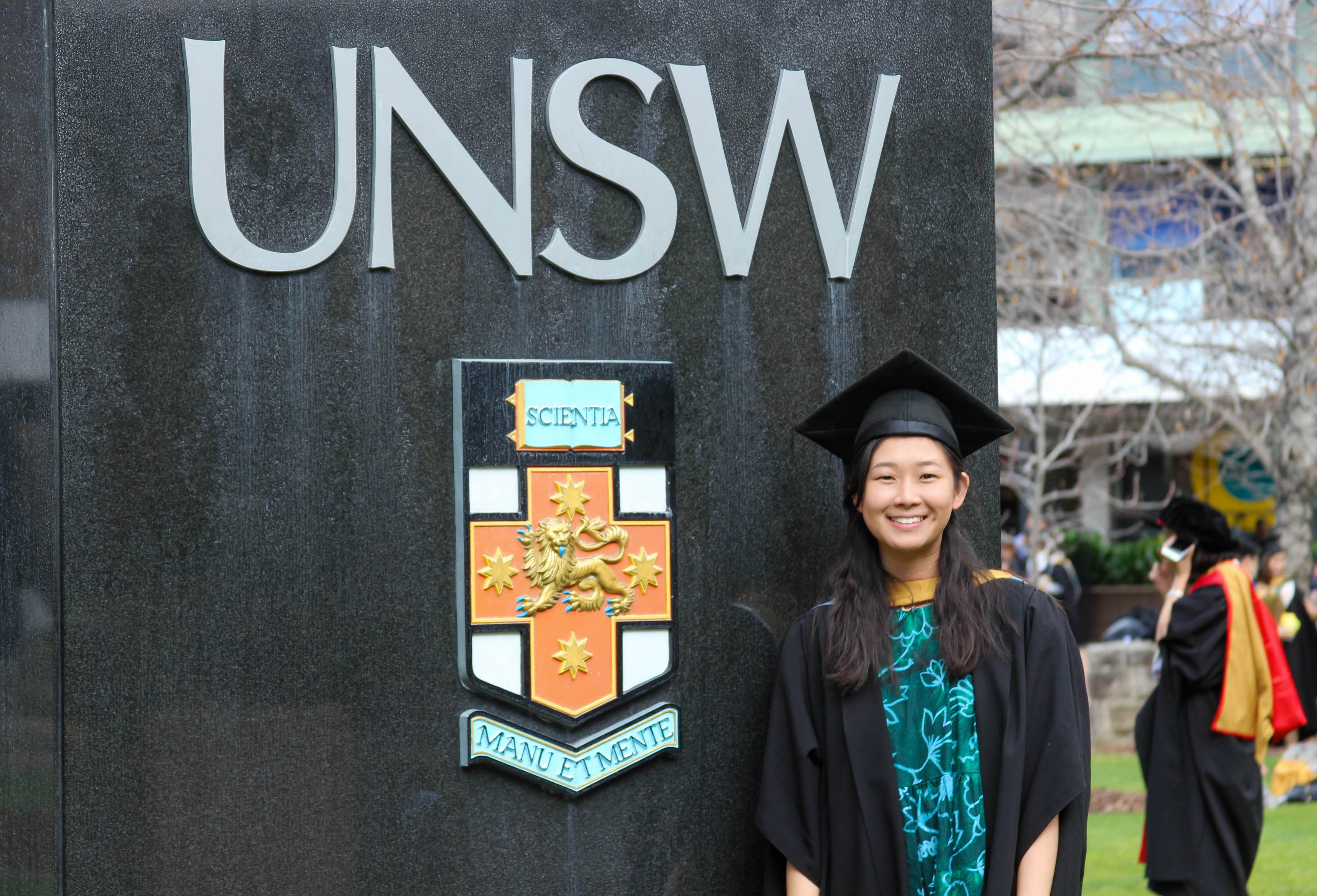#Class of 2019: Monica Lo
As a school student, Monica Lo recognised a passion for teaching which she now shares.
As a school student, Monica Lo recognised a passion for teaching which she now shares.

Monica Lo’s life, study and career path took some twists and turns before she graduated with a Master of Teaching (Primary) from UNSW. Born in China and moving between Sydney and Hong Kong while she was growing up, she attended high school in Hong Kong.
“I admired and respected my music and language teachers in high school,” Monica says. “I always felt welcome, supported and appropriately challenged during music lessons. And my language teacher [French] was so passionate about the language, and often went the extra mile to support our learning. I believe that both teachers’ genuine passion for teaching is partly what influenced my ultimate decision to pursue a career in teaching.”
Even though she had also been involved in forms of teaching herself – as an English tutor and a swimming instructor – Monica seriously considered opening her own cafe or becoming a flight attendant after completing high school.
Instead, she enrolled in a Bachelor of Arts & Business at UNSW. Her interest in teaching soon resurfaced after helping friends with feedback on their Education essays and, in her second semester, she transferred to a Bachelor of Arts/Education (Secondary).
“One of the most memorable courses I took very early on after I transferred was about student motivation and engagement in learning. I related to it, because I was very engaged in the course content,” she says.
Monica graduated with a Bachelor of Arts/Bachelor of Education (Secondary) as a Music major and Korean minor with Distinction before pursuing a Master of Teaching (Primary).
During the Masters degree, Monica participated in In School Teachers Education Program (INSTEP) at partner schools, which exposed her to a range of practical experiences, teaching techniques and students.
“The practical component of study is so important, as being a teacher requires you to be in the moment. It requires you to be able to immediately apply your knowledge in practical situations,” she says.
“Teaching is not just about knowing what to do and how to do things, it’s about knowing how to effectively deliver instruction in an engaging and concise manner. Every learner is different. There is no ‘handbook’ or ‘manual’ for how to deal with every ‘type’ of child. Therefore, it is through these practical experiences that we learn about the best teaching and learning strategies for our students.”
During the INSTEP program, students are encouraged to take part in some co-curricular and community activities.
“We learnt about literacy programs, observed choir rehearsals, helped out at Breakfast Club, and had many more opportunities. Doing these things really helped us connect and learn about our students outside of the classroom – about their unique interests and strengths.”
For aspiring teachers, Monica is keen to point out the important part that collaboration plays in teaching.
“Being a teacher requires you to constantly work with others in the interest of your students,” she says. “Sometimes the best advice can come from the class teacher next door. Engaging in professional conversations with mentor teachers, students and university lecturers introduced me to a variety of perspectives.
“I would say that building positive relationships with your class, mentors and school community is one of the most important things to remember as an aspiring classroom teacher. Having a genuine interest and respect for your students and community members fosters a safe and supportive learning environment.”
Monica graduated with a Master of Teaching (Primary) with Excellence earlier this year and has since returned to her practicum schools as a casual relief teacher.
“I believe I am even more passionate about teaching than before,” she says. “I am committed to being a teacher who is confident, a positive role model and supportive of her students’ interests.”